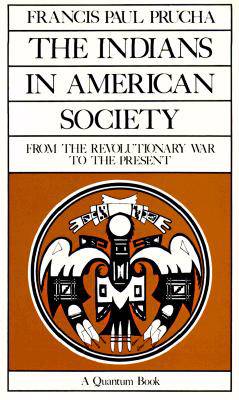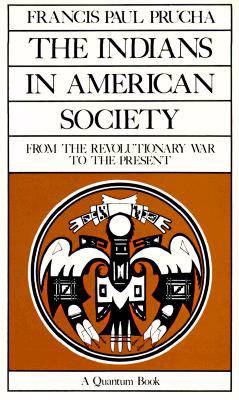
Je cadeautjes zeker op tijd in huis hebben voor de feestdagen? Kom langs in onze winkels en vind het perfecte geschenk!
- Afhalen na 1 uur in een winkel met voorraad
- Gratis thuislevering in België vanaf € 30
- Ruim aanbod met 7 miljoen producten
Je cadeautjes zeker op tijd in huis hebben voor de feestdagen? Kom langs in onze winkels en vind het perfecte geschenk!
- Afhalen na 1 uur in een winkel met voorraad
- Gratis thuislevering in België vanaf € 30
- Ruim aanbod met 7 miljoen producten
Zoeken
The Indians in American Society
From the Revolutionary War to the Present Volume 29
Francis Paul Prucha
€ 40,95
+ 81 punten
Omschrijving
American Indian affairs are much in the public mind today--hotly contested debates over such issues as Indian fishing rights, land claims, and reservation gambling hold our attention. While the unique legal status of American Indians rests on the historical treaty relationship between Indian tribes and the federal government, until now there has been no comprehensive history of these treaties and their role in American life.
Francis Paul Prucha, a leading authority on the history of American Indian affairs, argues that the treaties were a political anomaly from the very beginning. The term "treaty" implies a contract between sovereign independent nations, yet Indians were always in a position of inequality and dependence as negotiators, a fact that complicates their current attempts to regain their rights and tribal sovereignty.
Prucha's impeccably researched book, based on a close analysis of every treaty, makes possible a thorough understanding of a legal dilemma whose legacy is so palpably felt today.
Francis Paul Prucha, a leading authority on the history of American Indian affairs, argues that the treaties were a political anomaly from the very beginning. The term "treaty" implies a contract between sovereign independent nations, yet Indians were always in a position of inequality and dependence as negotiators, a fact that complicates their current attempts to regain their rights and tribal sovereignty.
Prucha's impeccably researched book, based on a close analysis of every treaty, makes possible a thorough understanding of a legal dilemma whose legacy is so palpably felt today.
Specificaties
Betrokkenen
- Auteur(s):
- Uitgeverij:
Inhoud
- Aantal bladzijden:
- 144
- Taal:
- Engels
- Reeks:
- Reeksnummer:
- nr. 29
Eigenschappen
- Productcode (EAN):
- 9780520063440
- Verschijningsdatum:
- 25/03/1988
- Uitvoering:
- Paperback
- Formaat:
- Trade paperback (VS)
- Afmetingen:
- 128 mm x 203 mm
- Gewicht:
- 154 g

Alleen bij Standaard Boekhandel
+ 81 punten op je klantenkaart van Standaard Boekhandel
Beoordelingen
We publiceren alleen reviews die voldoen aan de voorwaarden voor reviews. Bekijk onze voorwaarden voor reviews.









